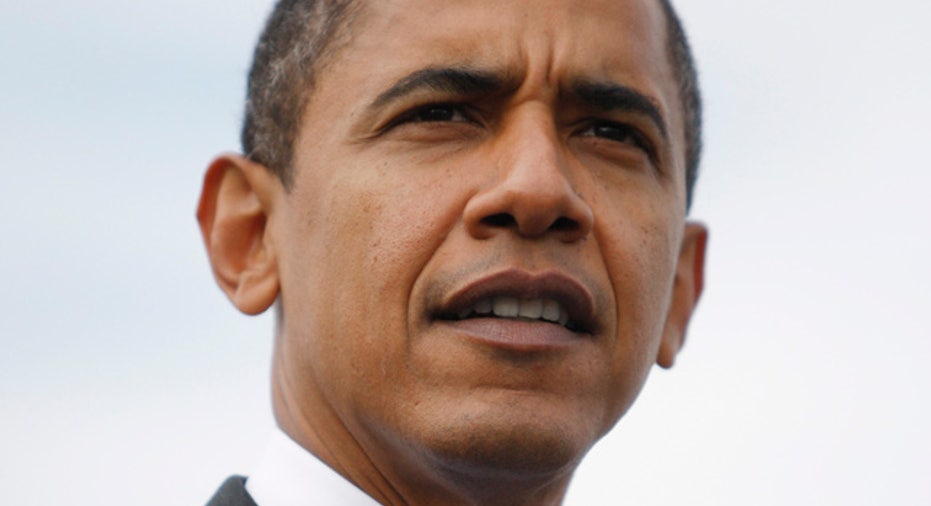Government Shutdown Looms Despite Obama's Intervention

With time running short, President Barack Obama failed on Tuesday to break a deadlock in budget talks between his Democrats and Republicans that threatens a partial shutdown of the U.S. government.
Some lawmakers said they were losing hope they could finalize a long-delayed budget deal to avoid a government shutdown before funding expires at midnight on Friday.
"I am not optimistic, no I'm not," Senate Democratic Leader Harry Reid told a news conference.
House of Representatives Republican leader Eric Cantor was also pessimistic. A deal was "not a likelihood," he said.
Republicans and Democrats are locked in a game of brinkmanship over how to fund the federal government for the final six months of the 2011 fiscal year.
Obama's belated intervention on Tuesday netted no gain and both sides emerged from a meeting at the White House sticking to their positions.
Obama said Americans wanted him and Congress to "act like grownups" and there was no excuse for not hammering out a deal in the next few days.
Republicans are eager to fulfill a campaign promise to cut spending and scale back government, while Democrats oppose the type and depth of the cuts proposed.
The dispute will set the stage for even larger budget battles likely to last into the 2012 election campaign.
Republicans on Tuesday proposed an overhaul of government-run health programs, dramatic tax cuts and sharp spending caps in a budget plan for the next fiscal year, which starts on October 1.
Republican leaders hope the proposal by House Budget Committee Chairman Paul Ryan will help ease pressure from conservative Tea Party members who are forcing the party to adopt a hardline stance in the current budget negotiations.
The deadlock in the budget talks threatens to throw hundreds of thousands of employees out of work and ripple through an economy still recovering from the worst recession since the 1930s.
Despite negotiators earlier tentatively agreeing to slash a record $33 billion from the budget, talks have stalled over the details. The two sides have been unable to agree on which government programs should be targeted.
Complicating matters, House Speaker John Boehner is now pushing for another $12 billion in cuts in exchange for a weeklong extension of the negotiations.
"We want the largest spending cuts that are possible," Boehner told reporters.
Democrats say Republicans are being unreasonable.
Boehner later held what he called a "productive" meeting with Reid to discuss the impasse.
While the talks continued, the White House warned federal agencies to make contingency plans in the event of a shutdown.
While the military would continue to operate and retirees would continue to get their Social Security benefits, passport offices, bankruptcy courts and national parks would likely close. The Internal Revenue Service would continue to collect taxes but would probably not issue refunds.
SHUTDOWN ODDS CLIMB TO 60 PERCENT
Financial markets would likely not be affected by a shutdown as the Treasury Department would continue to make debt payments, analysts said, but state and local governments could see their own budget woes worsen.
Investors are more concerned the government might be forced to default on its debt if Congress does not raise the country's $14.3 debt ceiling within the next few weeks. Failure to do so would be "catastrophic," Treasury Secretary Timothy Geithner warned Congress.
Prediction market Intrade, which allows people to bet on the outcome of events, showed investors are gambling there's a 60 percent chance the government will shut down by June 30, up from 40 percent earlier in the day.
Obama has been criticized by both parties for remaining aloof from a budget battle that has consumed Capitol Hill since the beginning of the year.
His late entry into the budget battle marks an attempt both to play the dealmaker and to avoid blame if Republicans and Democrats fail to forge agreement in time.
"The strategy follows the political logic of President Obama's whole career, which is to avoid messy battles which make you appear to be a partisan," said Ross Baker, a political science professor at Rutgers University.
Boehner, meanwhile, must contend with a different kind of political pressure. In his first big test since Republicans won control of the House last year, Boehner faces a brewing mutiny on his right flank.
Many members of his party, heeding the Tea Party movement, have shown little appetite for compromise and may not back a deal that Democrats find acceptable.



















